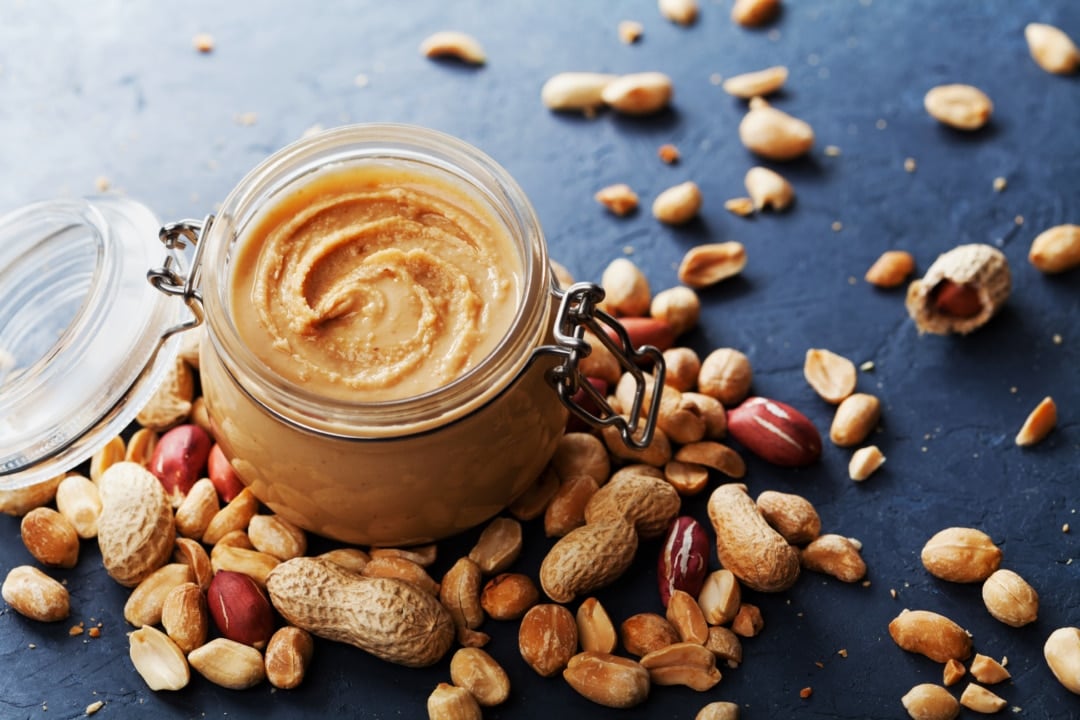7 Health Benefits of Olives + 6 Serving Ideas

Olives have a rich history that dates back thousands of years, and people worldwide appreciate them for their taste and nutritional value.
Explore the origin of olives and learn all there is to know about this gift of nature for your well-being. We will go through a detailed nutritional breakdown and discuss the potential health benefits of including olives in your diet. Furthermore, you can also learn about its potential risks and side effects.
Interesting Facts about Olives

Interesting Facts about Olives
Olives have a rich history and unique characteristics that have captivated cultures globally for thousands of years. Their origin in ancient civilization, diverse appearance, and fascinating taste profile have created a unique position for olives in human history and culinary traditions.
Let us delve into some interesting facts about olives.
Origin and History
Olives have an ancient lineage, as their cultivation can be traced back to at least 5.000 BCE in the Mediterranean region. Furthermore, historians believe that the earliest cultivation of olives began in modern-day Syria and Palestine.
Another fascinating fact about olives is their symbolic significance in ancient cultures. The ancient Greeks linked olives to wisdom, peace, and prosperity, believing they were associated with the goddess Athena.
Correspondingly, the olive branch has become a universal symbol of peace, friendship, and reconciliation.
Olives have also been considered a precious commodity because they produce olive oil. In many Mediterranean countries, olive oil production has played a crucial role from an economic perspective. It was used for culinary purposes, religious ceremonies, medicinal applications, and lamp fuel.
Appearance and Taste
Olives come in different colors, shapes, and sizes. They also vary in terms of their taste. But in facts, they are very salty.
Variety of Colors

Variety of Colors
You can find olives in different colors that indicate their ripeness and flavor. If you prefer a bitter, tangy taste, try green olives, which are usually harvested before they are fully ripe.
As the fruit ripens, its color changes from green to black and shades of purple or reddish brown, resulting in a softer and fruitier taste.
Different Shapes and Sizes
Depending on the variety they belong to, you will find olives in different shapes and sizes. While some are small and round, others are elongated and almond-shaped. For instance, the Kalamata olive is a popular Greek variety with a distinct elongated shape and a dark purple color.
Cured to Perfection

Cured to Perfection
In most cases, olives are too bitter to be eaten directly from the tree after being freshly harvested.
Therefore, they go through a curing process to make them more palatable.
This process involves various methods, such as brining, dry curing, or lye curing, each of which imparts a unique taste to olives.
Bitter versus Sweet
Ripe olives are bitter as they contain a chemical compound called oleuropein that acts as a defense mechanism for the fruit. The oleuropein content in olives decreases as they ripen, giving them a sweeter and milder flavor.
Versatility in Culinary Use
Olives are a staple ingredient in Mediterranean cuisine, contributing to Greek salads, tapenades, and Italian pasta sauces. They have a versatile taste that works well with a wide range of other ingredients, making them delightful additions to various culinary creations.
Nutritional Makeup of Olives

Nutritional Makeup of Olives
Olives are more popularly known for their delectable taste but also a powerhouse of nutrients.
These small fruits come packed with essential minerals, micronutrients, phytonutrients, and antioxidants, as discussed below.
Here you will learn more about the health benefits of bananas.
Macronutrients in Olives

Macronutrients in Olives
Olives are essential to a balanced diet as they primarily consist of healthy monounsaturated fats, which contribute to 80 percent of their total fat content. These heart-healthy fats, such as oleic acid, are linked to various health benefits.
Also, olives are a good protein source, making them a valuable asset for vegetarians and vegans to improve their plant-based protein consumption. The protein content in olives also makes them an excellent addition to a post-workout meal.
Although the carbohydrate content in olives is relatively low, the carbohydrates they do contain are mostly dietary fibers.
Vitamins and Minerals
Olives are a rich source of essential vitamins and minerals that contribute to overall health. Most notably, it provides a high content of vitamin E that helps maintain a healthy immune system and supports skin health.
On the other hand, it also provides vitamin K, which helps maintain bone health and aids in proper blood clotting. Consuming olives regularly can help reduce the risk of fractures.
Among the vital minerals, olives contain calcium, magnesium, phosphorus, and potassium. Each of these contributes to maintaining overall well-being in different ways.
Phytonutrients and Antioxidants

Phytonutrients and Antioxidants
Olives contain antioxidants and phytonutrients like polyphenols and flavonoids. These are bioactive compounds that have strong anti-inflammatory properties. They are also potent at neutralizing harmful free radicals that can cause cell damage and chronic diseases.
Among others, oleuropein is the most notable antioxidant in olives, which has a range of potential health benefits, including anti-cancer properties and improved heart health.
Combining phytonutrients and antioxidants in olives makes them a valuable addition to the daily diet to promote anti-inflammatory effects and improve overall health.
What Kind of Olives Are Good For You?
There are various types of olives, each of which offers a unique taste profile and health benefits. Irrespective of whether you prefer the tangy taste of green olives, the rich sweetness of black olives, or the delectable taste of Kalamata olives, each variety can be a valuable addition to your diet.
Health Benefits of Green Olives

Health Benefits of Green Olives
Green olives are underripe because they are harvested before they have fully ripened. They have a bitter and tangy taste profile. They are also rich in vitamin E, a powerful antioxidant that protects the body from oxidative stress.
Not to mention, green olives are good for heart health as they contain healthy monounsaturated fats that manage the body’s cholesterol levels by decreasing levels of low-density lipoprotein (LDL) and promoting healthy blood vessels.
Green olives are also beneficial for maintaining a healthy digestive system, as they are a good source of dietary fiber that promotes regular bowel movements.
Health Benefits of Black Olives

Health Benefits of Black Olives
Unlike green olives, black olives are fully ripe and have a softer and fruitier taste. Most importantly, black olives are a rich source of iron, which is crucial for producing red blood cells. Therefore, black olives help support overall energy levels by preventing iron-deficiency anemia.
Furthermore, they also contain healthy monounsaturated fats and vitamin E. Hence, black olives are also helpful in promoting heart health and preventing chronic diseases.
Health Benefits of Kalamata Olives

Health Benefits of Kalamata Olives
The Kalamata variety of olives is native to Greece and has a distinctive elongated almond shape and dark purple color. They offer a unique taste profile that combines fruity and slightly bitter notes.
Kalamata olives have many health benefits, as they are also a rich source of monounsaturated fats that help prevent heart disease. This variety of olives also contains powerful antioxidants like oleuropein and hydroxytyrosol, which are linked to reducing inflammation and promoting brain health.
Meanwhile, Kalamata olives are also a source of minerals like magnesium, calcium, and iron. Hence, they play a role in maintaining overall health.
Health Benefits of Olives

Health Benefits of Olives
Olives are beloved for their culinary versatility and rich taste.
However, they also offer a treasure trove of nutritional and health benefits beyond their mouthwatering flavor.
Some aspects of health that olives positively impact are discussed below – for example heart health, bone health and digestive health. Read on for more information and tips for the use of olives.
Heart Health
Olives are a rich source of heart-healthy monounsaturated fats such as oleic acid, making them heart-friendly. These small fruits keep the “bad cholesterol,” or LDL, levels low and promote the levels of HDL, for example, good cholesterol.
As a result of maintaining healthy cholesterol levels, olive consumption can help reduce the risk of heart diseases like atherosclerosis. Also, olives contain antioxidants that combat oxidative stress and inflammation, which are underlying factors leading to cardiovascular problems.
Bone Health

Bone Health
Olives are also beneficial for maintaining strong, healthy bones as they are rich in calcium, phosphorus, and magnesium. These minerals are essential in preventing bone-related diseases like osteoporosis.
While calcium is critical for bone health and density, magnesium plays a key role in bone structure and regulates calcium levels in the body.
Digestive Health
Dietary fiber is essential for maintaining a healthy digestive system as it promotes regular bowel movements, prevents constipation, and supports gut health. Correspondingly, olives are a rich source of dietary fiber.
In addition, the natural compounds in olives have been shown to have a positive impact on the microbiota of the gut. Therefore, olives help foster a balanced and diverse microbial community in the gut that helps keep the digestive system healthy and improve the immune system.
Cancer Prevention
There is a high content of potent antioxidants in olives, such as vitamin E and polyphenols. These compounds play a significant role in neutralizing free radicals and reducing oxidative stress.
Free radicals can damage cell DNA, potentially leading to cancer development. Incorporating olives into your diet can help you benefit from the anti-cancer properties of antioxidants.
Surprising Sexual Benefits of Olives

Surprising Sexual Benefits of Olives
Beyond their taste and well-known health benefits, olives also hold surprising benefits for sexual well-being. The antioxidant content of olives helps improve blood circulation and supports healthy sexual function.
Proper blood circulation plays a crucial role in maintaining the sexual health of both men and women. Furthermore, the healthy fats in olives, like oleic acid, are also responsible for hormone synthesis, which can positively impact libido and sexual wellness.
Anti-inflammatory and Antioxidant Properties
Olives are rich in bioactive compounds like polyphenols, flavonoids, and oleuropein, potent antioxidants with anti-inflammatory properties.
Not to mention, these compounds play a crucial role in combating oxidative stress and chronic inflammation, which are two interconnected factors that contribute to various diseases.
An imbalance between the free radicals and antioxidants in the body can lead to oxidative stress, which results in cellular damage.
Meanwhile, olives contain antioxidants that neutralize free radicals, protecting cells from damage. Consequently, it reduces the risk of chronic conditions like heart disease, diabetes, and certain cancers.
Olives also promote overall health by supporting the body’s natural defense system. These flavorful fruits have anti-inflammatory properties that help alleviate symptoms associated with inflammatory conditions like asthma and arthritis.
Olives and Weight Management

Olives and Weight Management
Contrary to popular belief, healthy monounsaturated fats can help with weight management. The healthy fats in olives help you feel satiated and curb your appetite, which leads to a lower overall food intake.
Olives keep you from overeating and help with portion control as they make you feel full for longer. Its low carbohydrate content and moderate protein levels make it a suitable addition for weight loss and muscle growth and maintenance.
Potential Risks and Considerations

Potential Risks and Considerations
Although there are countless benefits to consuming olives and they are relatively safe to consume, there are a few potential risks you should be cautious of, particularly relating to allergies and intolerances.
Explore these potential risks and side effects to avoid mishaps.
Allergies and Intolerances
Some allergies and intolerances related to olive consumption are listed below.
Olive Allergy
Some people may have an allergy to olives or olive-derived products. The common symptoms of an olive allergy are itching, swelling, hives, gastrointestinal distress, or even anaphylaxis.
Some individuals may have seasonal allergies to olive tree pollen and experience oral allergy syndrome when consuming certain fruits with shared allergenic proteins.
This reaction may involve itching and tingling in the mouth and throat.
Histamine Intolerance
Like other fermented products, olives may contain histamine, which causes allergic reactions. People intolerant to histamine may experience adverse effects like headaches, hives, or gastrointestinal issues.
Interactions with Medication
You must be mindful that olive consumption can lead to interactions with certain medications. Hence, if you take prescription medications, you should avoid eating olives.
Blood Thinners (Anticoagulants)
There is a natural anti-platelet property in olives, particularly olive oil. This property can inhibit the clotting of blood. If you take anticoagulants like warfarin, you should be cautious about consuming olives, as they can potentially increase your risk of bleeding.
Blood Pressure Medication
As olives are rich in potassium, they can interact with blood pressure medications and enhance the effects of medicines that lower blood pressure.
Medication Absorption
Olives can affect the absorption of certain medications into the bloodstream, like beta-blockers and statins. The high-fat content in olives can lead to a delay in the absorption of these medicines.
Precautions and Recommendations

Precautions and Recommendations
You should take certain precautions to avoid experiencing any adverse effects from olive consumption.
- Moderation: Like all other foods, moderation is the key. Avoid overindulging in olives if you have specific health concerns or take prescription medication.
- Label Reading: If you have certain allergies or intolerances, you must carefully read product labels to identify potential allergens and avoid histamine-rich ingredients.
- Consult a Healthcare Provider: You should consult your physician to assess the safety of consuming olives if you have allergies or intolerances, or take prescription medications.
Recipes and Serving Ideas for Olives

Recipes and Serving Ideas for Olives
With their rich and decadent taste, Olives are excellent additions to any diet.
Here are some delicious recipes, serving ideas, and tips for choosing the right olives to elevate your culinary experience.
Try out these amazing recipes and serving ideas for olives.
Mediterranean Salad
You can easily create a Mediterranean salad by mixing some olives, cucumbers, cherry tomatoes, red onions, and feta cheese. Then, drizzle some extra virgin olive oil to elevate the taste of this wholesome salad that acts as the perfect side for grilled meats and seafood.
Olive Tapenade
Blend black or Kalamata olives with capers, garlic, herbs, and olive oil to whip up a savory olive tapenade. You can enjoy this versatile spread as a dip for bread and crackers or add it to pasta.
Stuffed Olives and Charcuterie Board

Stuffed Olives and Charcuterie Board
Take your appetizer game up a notch with stuffed olives. Make this bite-sized treat by filling green olives with cream cheese, blue cheese, or almonds and marinating them in herbs and olive oil.
An amazing serving method for olives is making a beautiful charcuterie board featuring an assortment of olives, cheeses, cured meats, nuts, and fresh fruits.
Pasta and Pizza
Elevate your favorite pasta dishes and pizzas by adding olives for extra flavor. Furthermore, you can create a Mediterranean-inspired pasta salad by combining black olives, sun-dried tomatoes, and feta cheese.
Rice and Grain Bowls
Upgrade your rice and grain bowls by mixing cooked quinoa or brown rice with roasted vegetables, chickpeas, and olives.
Choosing the Right Kind of Olives
There are certain factors you should keep in mind while selecting olives for your recipes. Some of them are as follows.
Taste
Firstly, you must choose the olives that suit your taste preferences. Depending on whether you like a tangy, slightly bitter taste or a sweeter, fruitier flavor, you may choose between the different varieties of olives.
Quality
Choosing high-quality olives can ensure optimal taste and nutritional value. Therefore, choosing olives that are firmer, plumper, and have minimal blemishes is better.
Packaging
You can find olives in various packaging options that range from jars to bulk bins. Choose a packaging size that suits your needs and ensures the freshness and preservation of olives.
Storage

Storage
To maintain the quality and taste of olives, you must store them properly once they are opened. Keeping olives refrigerated in brine or a sealed container with olive oil can prevent spoilage.
- Tomato Juice. Health Benefits + Tips.
- Asparagus. Benefits for Your Health.
- Mango. Benefits and Side Effects.
- Onions. Health Benefits and Tips for Use.
- Spinach. Benefits and Exctiting Facts.





